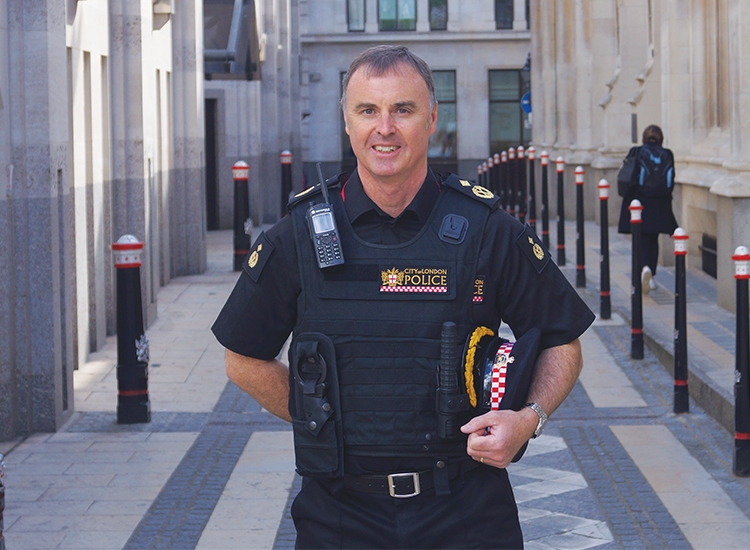AC Sutherland, City of London Police: security update autumn 2021
People are understandably keen to return to some semblance of normality, as the country moves to the fourth step of the Government’s roadmap after almost 18 months of COVID-19 impacting everyone’s lives.
It’s only natural to want to catch up with friends and colleagues and enjoy all that our towns and cities have to offer, after so long communicating through computer screens. At the City of London Police, we want to ensure that everyone can enjoy their new-found freedom safely.
One of our priorities is tackling violence against women and girls. This is also a priority for the Government, which recently launched a strategy focusing on prevention and support.
We have been working with Good Night Out, a campaign for safer night life, which believes nights out should be about fun and freedom, not fear.
Together, we aim to help nightlife spaces and organisations to better understand, respond to, and prevent sexual harassment and assault. The Good Night Out campaign does this through specialist training, policy support and an accreditation programme, which can help to give people confidence that accredited venues will be welcoming and safe.
With Good Night Out and the City of London Corporation, we are proud to be part of the Reframe the Night campaign across the Square Mile, which aims to challenge and reframe common myths about who is responsible for sexual violence in nightlife.
The campaign encourages people to be an active bystander and challenge unhelpful attitudes or harmful beliefs, to draw an active link between these attitudes and the violence they enable. Historically, a culture of ‘victim-blaming’ has prevailed, which can lead to people who experience sexual violence asking themselves what they could have done to prevent it. They may ask themselves if it would have happened if they’d dressed differently, or they may question if they have taken a ‘joke’ too seriously.
Of course, it’s always the perpetrator who is responsible. That’s why it’s so important that harmful attitudes and beliefs are challenged with campaigns like Reframe the Night.
It’s also vital that people become active bystanders. This means that if you think someone is feeling unsafe or uncomfortable in a situation, it’s ok to ask if they’re ok. If you still have concerns, let a member of staff or security know. They will be able to help. And if they have been working with us as part of the campaign, they will have the extra know-how to deal with the situation sensitively and appropriately.
We’re also working to tackle violence against women and girls in the home. With COVID-19 restrictions meaning we all had to stay at home, this will have been unimaginably terrifying for people whose home is not a safe place.
There are many barriers that may stop a survivor of domestic abuse from leaving an abusive relationship: fear; isolation; lack of support; shame and low self esteem. It’s important to understand these and remember that the only person responsible for the abuse is the abuser. That’s why campaigns like Crimestoppers’ London Hidden Harms seeks to educate people about domestic abuse, which can often be hidden from view, and know the signs to spot.
People are encouraged to report their suspicions if they believe someone they know is being abused. Crimestoppers can take reports in multiple different languages, online and on the phone, and they guarantee the anonymity of anyone who makes a report.
They will pass the information to the relevant police force who, with partners, may be able to intervene away from the abuser to check on the person who may be being abused.
Sexual violence and domestic abuse has no place in the City. Together, we can be the change that’s needed. By educating ourselves and others, challenging harmful attitudes, supporting survivors and working to bring perpetrators to justice, we can help to make sure everyone is safe from harm.
Keep safe. Stay well.
Tips for staying safe while out and about
Be prepared
Plan your route in advance. Carry a charged mobile phone and a bank card or cash, and tell someone where you’re going.
Be aware
Using a mobile phone, whether making a call or texting, wearing a hood or listening to loud music all affect your awareness of your surroundings.
Trust your instincts
Try to avoid walking alone at night in places such as parks and side streets or any unfamiliar environment. If you do have to walk, stick to busy places where there is a lot of activity, CCTV and good lighting.
Make a plan
Discuss with friends what to do if something were to go wrong on your night out or you get separated. Agree a backup plan and look out for one another.
Click here to read previous updates from the AC
Click here to read more articles on personal safety
Click here for more articles on the City of London Police


